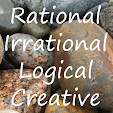I guess Robert Palmer was right. According to a recent study conducted at Albert Einstein College of Medicine in New York being in love has the same effect as taking cocaine. CNN -
Loving with all your ... brain reports:
While being scanned, the students looked at a photo of their beloved. The scientists found that the caudate area of the brain -- which is involved in cravings -- became very active. Another area that lit up: the ventral tegmental, which produces dopamine, a powerful neurotransmitter that affects pleasure and motivation.
Dr. Brown said scientists believe that when you fall in love, the ventral tegmental floods the caudate with dopamine. The caudate then sends signals for more dopamine.
"The more dopamine you get, the more of a high you feel," Dr. Brown says.
Or as her colleague, Dr. Helen Fisher put it: When you fall in love, "exactly the same system becomes active as when you take cocaine. You can feel intense elation when you're in love. You can feel intense elation when you're high on cocaine."
And if you are thinking that it is really all about the sex then think again.
The answer is: Brains in love and brains in lust don't look too much alike.
In studies when researchers showed erotic photos to people as they underwent brain scans, they found activity in the hypothalamus and amygdala areas of the brain. The hypothalamus controls drives like hunger and thirst and the amygdala handles arousal, among other things.
In the studies of people in love, "we didn't find activity in either," according to Dr. Fisher, an anthropologist and author of "Why We Love -- the Nature and Chemistry of Romantic Love."
"We now have physiological data that suggests there are different brain systems for sex and love," says Dr. Fisher.
At some point, the two do become linked. People in love have elevated levels of dopamine. Lots of dopamine, in turn, triggers the production of testosterone, which is responsible for the sex drive in both men and women.
This helps explain why falling in love can make someone all of a sudden seem sexy.
"Three weeks ago he was just another nice guy in the office and now everything about him is sexual," says Dr. Fisher.
If you read the whole article, you find that rejection and losing someone's love creates an actual pain response in the brain as well. It's all quite interesting, to me anyway.


No comments:
Post a Comment